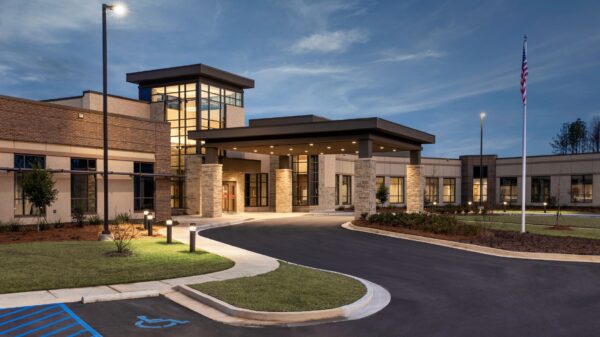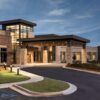On Friday, APR spoke with Dr. Bechara Choucair, White House vaccinations coordinator, to discuss lagging COVID-19 vaccinations rates and the spread of the more contagious delta variant. Just 32 percent of Alabamians are fully vaccinated against COVID-19, according to the Centers for Disease Control and Prevention.
APR: Could you give us an overview of where things stand across the country and in Alabama?
Choucair: More than 175 million people have gotten at least one shot of the vaccine. More than 150 million people are fully vaccinated in this country. More than 65 percent of adults have had at least one dose, so we’ve made great, great progress, but the fact remains we still have millions of people who need to be vaccinated, including people in Alabama, so that’s why this month is all about pulling out all the stops. Doing everything we can to make it as easy and as convenient for people to get vaccinated.
APR: What can governors and state health departments do to improve vaccination rates?
Choucair: government at all different levels, we need to be thinking about how do we make the vaccine access easier and more convenient. At the same time, how do we build vaccine confidence, and we do that all with keeping a very close eye on equity. When it comes to vaccine access and convenience, you’ll see things like hours at pharmacies being extended. There are pop-up clinics happening at community centers, faith based organizations. You see vaccination sites at sports events or NASCAR races. You’ll see us engaging barbershops and beauty salons because that helps you connect with people who might not otherwise be able to get access to the vaccine, or having these one-on-one trusted conversations.
You’ll see us engaging mayors in making sure that mayors and their staff are involved in canvassing, door-knocking, texting. You’ll see us engaging universities and colleges and making sure that they are doing everything they can to make it easy for their students and their staff to be vaccinated.
At the same time, we have to continue to be able to answer people’s questions, and those are legitimate questions for people who still have doubts about the vaccine. We have to be able to arm them with the right answers. With the facts, so that they can make informed decisions, and I’m hoping when they make those informed decisions, they’ll be in favor of getting vaccinated.
APR: What are we learning about why some people have vaccine hesitancy? What are those concerns?
Choucair: Still asking, are the vaccines safe? Yes they are. Have they been developed way too fast? No they haven’t. It’s actually took two decades to get the mRNA technology to a point where it could be applied there. Do they have side effects on infertility? We don’t have evidence of that. Is it safe to get vaccinated while you’re pregnant? We’ve had hundreds of thousands of pregnant women who’ve gotten vaccinated.
The other thing that we’ve learned is that people trust people they know, and that’s why we’re building that community core, and now we have thousands and thousands of people who raised their hands and volunteered to answer people’s questions, and having those one-on-one conversations becomes really, really critical.
APR: With the more contagious delta variant quickly spreading is there a concern that with low vaccination levels in many places, and the uncertainty of the length of time natural immunity provides protection, we could see another spike in cases, hospitalizations and deaths?
Choucair: are concerned about the Delta variant. If you look at what’s happening with the delta variant now that’s detected across the globe, more than 70 countries, including here in the United States. The delta variant used to be about 2.7 percent of the samples in late May. Now we’re at about 20 percent of the samples, and what we know about the Delta variant is that it appears to be associated with higher transmissibility and more severe disease, including hospitalization, so when you have an area with low vaccination rates and you start seeing more and more of the delta variant, this is just going to be a recipe for an opportunity for this virus to replicate and really create an outbreak there.
Now the good news about the Delta area, and what we’ve learned from the UK and other places, is that the two-dose mRNA vaccines appear to be very effective against the Delta variant, so this is one more reason for people who are still debating whether they want to get vaccinated or not. The delta variant is a key reason why they should raise their hand go get vaccinated.
APR: What would you say to people who would rather take the chance of getting COVID and recovering, rather than get vaccinated?
Choucair: would not take that bet. We know that the best way to get protected, to protect yourself, to protect your family, is to get vaccinated. There’s no q question about that. When you look across this country what you see right now, the people who are hospitalized, the people who are dying from COVID, the overwhelming majority by far are people who are unvaccinated. We have that tool in our toolbox in this country, so let’s make sure that we protect ourselves, protect our family, protect our communities and that starts by getting vaccinated.
APR: Has logistics or vaccine hesitancy been the larger obstacle in reaching into rural areas that have fewer vaccinated people?
Choucair: I know that there are still people in rural America wants to get vaccinated, so that’s why we want to make it as easy as possible for them to get vaccinated. We started sending vaccines directly to rural health clinics. We are working with rural hospitals to make sure they have best practices in the hospitals to be able to get vaccines. We’re working with doctors offices to make sure that doctors have vaccines in their offices, so when they’re seeing their patients they could advise them and they could get them vaccinated.
Access continues to be an important part. At the same time in rural communities, we have to also continue to work on building confidence and answering people’s questions, so you’ll see as part of the American rescue plan there’s $100 million for rural health clinics across the country to be able to build these vaccine confidence efforts in rural America, so having those one-on-one conversations, so having those one-on-one conversations, whether you’re in rural America or in urban America, are so critical.






















































